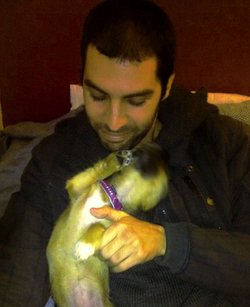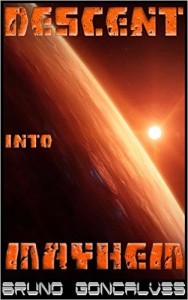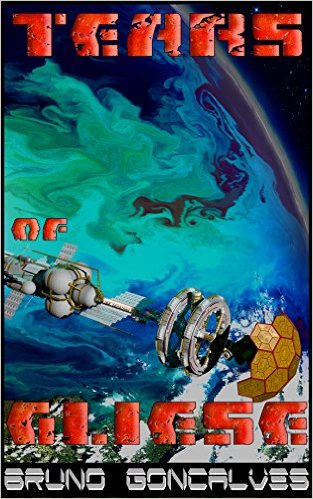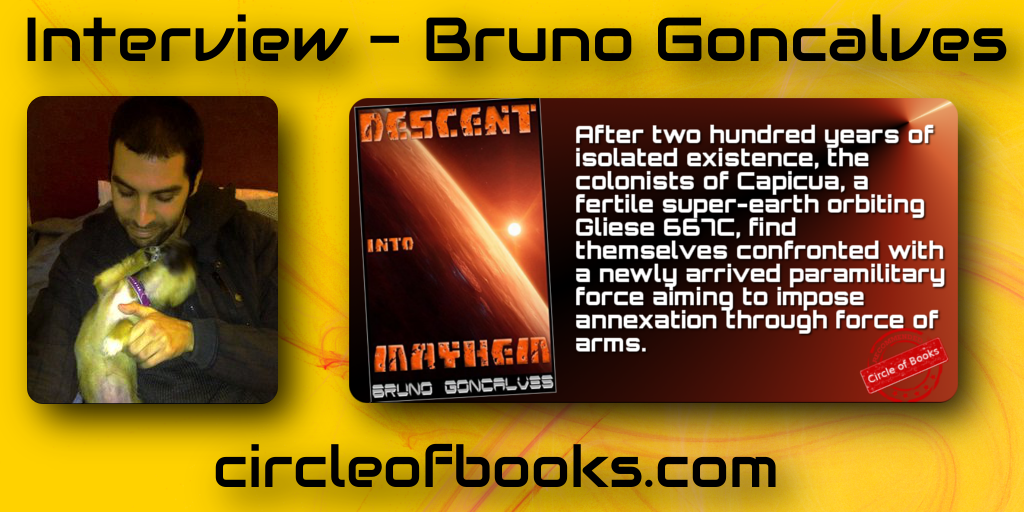Interview – Bruno Goncalves
 |
 |
 |
Could you present yourself to our readers who don’t know you yet?
I’m basically the kind of guy you wouldn’t look at twice on a busy street. I only stand out when I’m in uniform, and that’s just the way I like it. I am completely normal on the outside. Little do they know that there’s a crazy writer hidden behind this vacant expression.
Please tell us a bit about your first book, Descent into Mayhem – Capicua Chronicles
Book 1.
My first attempt at writing failed spectacularly. I still have the first seven chapters of that book hidden somewhere in an old external drive. I would honestly prefer to never have to look at it again. I became too ambitious; I couldn’t fill anyone in on the plot without getting confused myself. So when I started again, I realized that I was either going to have to keep the concept and plot tightly familiar, or make it completely out of this world.
Descent into Mayhem ended up containing both of these elements. The action takes place on an exoplanet orbiting the star Gliese 667C. The time-frame is set more than 700 years into the future. There is no faster-than-light travel, nor is there any Physics-defying technology, and as a result the colonization of these outlying worlds has taken centuries to accomplish. Communications between this planet and Earth faltered and then died. All this is entirely possible. The concept for this series was the following: What if these colonists were to come into violent contact with earthlings after centuries of separation? What kind of a war would take place? What kind of people would fight it?
What made you write a book where one of the main features are the Mecha?
I stated above that Descent into Mayhem contains some concepts that are familiar to me. Mecha is, perhaps, the best example of this. I – love – Mecha! Starship Troopers, Gundam, Macross, Aliens, Avatar … Every book, film or anime series that came out with a Mech or Mobile Suit in it captured my fascination. I eventually went so far as to make use of my unfinished university studies (Physics Engineering) to design two Suits of my own, Suits that just might work. I Scienced that hell out of it, predicting issues like motion-sickness and proposing possible medical protocols to treat it. The end-result was then incorporated into the series. My first edition was a little tech-heavy and I got a few complaints from reviewers. I have since had to tone it down a little, but much of the tech is still in there.
Your main character, Toni, is a very complex character. With good things and not so good things like real human beings – it’s impossible not to like him. Can you tell us a bit about the process of creating Toni?
Toni’s story is not so different from any soldier who decides to try to ‘make something of himself’ through military service. Just like most of them, Toni is trying to overcome his weak self-image and is thus unprepared for the fact that reality is unforgiving; no-one over there is keeping tabs on how much each soldier can take before he is driven over the edge. Toni is emotionally complex, and this spells trouble when pressure is applied and narcotics begin to be administered. I have personally experienced some of this, but mostly I’ve seen it happen to a few recruits. Toni is the amalgamation of many of the more interesting recruits to have been under my ‘care’.
If I am not mistaken you dedicated some years of your life to combat engineering. How this experience influenced Descent into Mayhem?
Combat engineers cannot afford to be impetuous. They must be practical, industrious and methodical; otherwise their very particular mission is at risk. I was taught all this and much more over the course of five years as a Militia Officer in the Portuguese Army. Most of that time I spent training people to become soldiers. I trained somewhere between 600 and 800 recruits in that time. I have since forgotten most of their faces. Nowadays, I go to a FNAC store and find a security guard staring at me intently. After a while he approaches and asks the fateful question: Are you Lieutenant Gonçalves, by any chance?
This has happened to me more times than I can count. I’ve mostly come across former recruits of mine in security and law enforcement, and I’ve even seen a couple of them on the other side of the legal fence.
When I wrote Descent into Mayhem, I did so with an eye on the rules of military doctrine (and also the unwritten rules of real-world soldiering). But I took into consideration that these organizations are also made up of people, and each has emotions, views and personal issues of his own.
To me it was delightful to read about the recruit life – how they interacted with each other and their superiors. Did you base any of it from your personal experiences (or stories you heard of) when you were a recruit?
Much of the first part of my book is dedicated to recruit life. Much of the interaction (punishments and confrontations included) has actually happened in some form or another. As an example, the Orbit Order that Toni and Ian were sentenced to was actually commonly used in South Africa during the eighties. The punishment of standing in formation over the course of an entire day is one I personally had to endure three days in a row. I only have fond memories of that now, for some reason.
Which were your favorite and less favorite parts of writing?
My least favorite part of writing is that initial part when my muse just won’t show up. That B**** just lies around while I tap at the keys furiously, hating every word I put there. When she finally decides to make an appearance, however, I set my frustration aside and quickly forgive her. I can then set to work and do some actual writing. My absolute favorite part is when I get taken in by the narrative and begin to ignore all my carefully made notes for that chapter. By the time I run out of steam, rock music is playing in my head and I’m thinking: “I nailed it! I just nailed it!”
Descent into Mayhem is the first book of the Capicua Chronicles, can you tell us a bit more of what we have coming next?
Tears of Gliese is its upcoming sequel. As I write this, I’m about half-way through my last edit and three beta readers have already read the first draft. The body-count rises and Toni discovers a lot about his inherent strengths (and weaknesses). The lack of Capicuan unity also comes into play, as anyone who read the first book’s epilogue will have guessed. Oddly enough, the same might be said for the opposing Earth Federation Force. As armies clash and lines become blurred, the fate of Leiben, the planet’s capital city, hangs in the balance.
There will be a third novel after this. Although it presently has no working title, I’ve already hammered out its general plot. I will only say that this will mark Toni’s darkest hour. The spirit of the book is simple: one must somehow find strength through weakness.
You are a police officer, when do you find time to write? What do you do when you are not on duty or writing?
As a police officer and father, I find it tricky sometimes to do some decent writing. I do this primarily during the weekend, although when I’m really in writing mode, I’ll begin to work as soon as I return home. There is usually a stack of pizzas in the fridge at those times, and often-times the dishes remain dirty.
When I’m not writing, I’m goofing around with my daughter, visiting my family or messing around with my crazy, awesome friends. Some anime or manga will also find its way into my life when I’m set on procrastinating.
What inspired you to write Descent into Mayhem?
It all came together just as the current hunt for extra-solar planets was lifting off. Every day a new discovery was being published. What better inspiration is there than finding out that there is actually a Super-Earth out there named Gliese 667Cc (with an orbital period suspiciously similar to Capicua’s, I should add). This was the starting point for Descent into Mayhem. I was also bored out of my skull at the time, newly – arrived in Lisbon with no nearby friends, no girlfriend, no family, only a job that quickly became routine over time. Writing helped me overcome that.
What are you reading at the moment? Any favourite authors?
I’ve only been reading Indie authors for a while now. Those who I enjoy reading are Felix R. Savage, Joe Dacy II and David Rose (although this South African author only writes short stories). I would also like to mention Roy Dias, a Luso-Canadian writer with Asperger’s Syndrome, who has written a pair of books that feature characters with that condition.
What are you writing now or what are you working on?
As soon as Tears of Gliese is published, I will be taking a break from the series to attack two brand new writing projects at the same time. Both are science-fiction, but neither is of the military sort. I’ve had them in the drawer for a while now and I’m itching to get going, especially since ideas have been flowing and the initial research is already complete. I refuse to say any more. These projects are top-secret for now. I would tell you, but then I’d have to kill you.
Bruno, thank you so much for taking the time to answer our questions. I am looking forward to read more of Toni and Capicua.
Visit the author’s page here on circleofbooks.com
